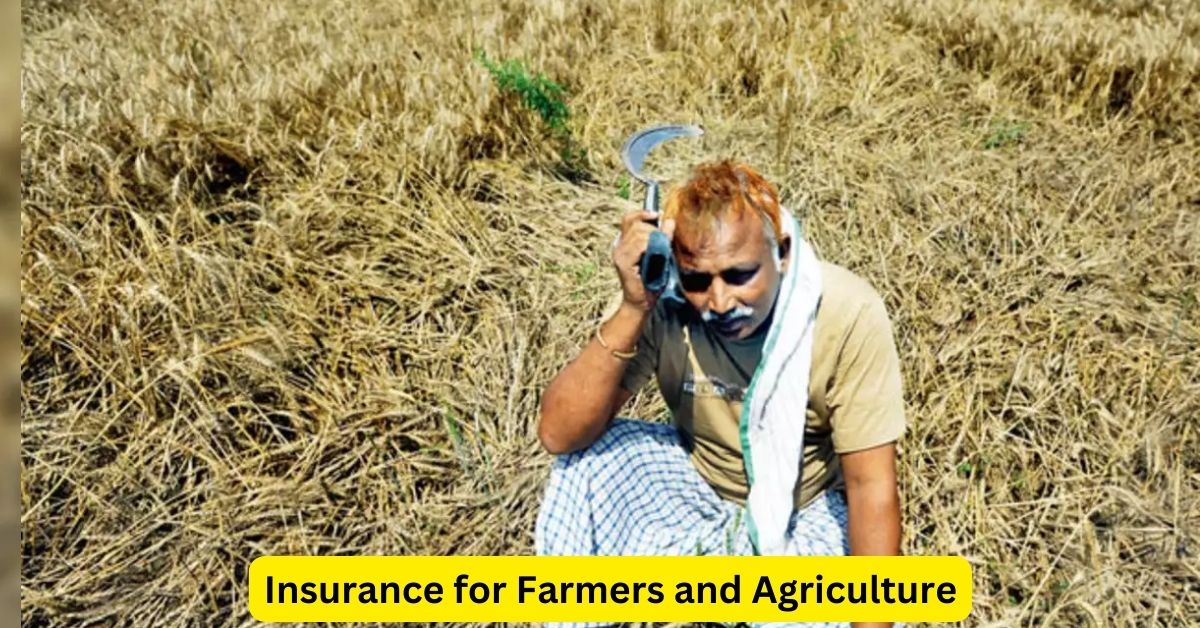Agriculture is the backbone of many economies, providing essential food and resources. However, farming is fraught with risks, from unpredictable weather patterns to market fluctuations. Insurance for farmers and agriculture is crucial for managing these risks and protecting both the livelihood and investment involved in farming operations. This article explores why insurance is vital for the agricultural sector and highlights the key types of coverage that can safeguard your farming enterprise.
Why Insurance is Crucial for Farmers
Farming involves a range of inherent risks, making insurance a critical component of a robust risk management strategy. Here’s why insurance is essential for farmers:
**1. Protection Against Natural Disasters: Farmers are vulnerable to natural disasters such as droughts, floods, hurricanes, and wildfires. Insurance provides financial protection against the damage caused by these events, helping to recover losses and continue operations.
**2. Coverage for Crop Loss: Crop yields can be affected by various factors, including pests, diseases, and adverse weather conditions. Insurance helps mitigate the financial impact of crop losses by providing compensation for lost or damaged crops, ensuring that farmers can manage their economic risk.
**3. Livestock Protection: Livestock is a significant investment for many farmers. Insurance coverage for livestock protects against losses due to disease, accidents, or theft, ensuring that farmers can recover the value of their animals and maintain their operations.
**4. Financial Stability: Farming is capital-intensive, requiring substantial investments in equipment, machinery, and infrastructure. Insurance helps safeguard these investments by covering repair or replacement costs, allowing farmers to maintain financial stability even when faced with unexpected expenses.
Key Types of Insurance for Farmers and Agriculture
To effectively manage risks, farmers should consider the following types of insurance coverage:
**1. Crop Insurance: Crop insurance protects against losses resulting from adverse weather, pests, or diseases. It typically includes two main types: yield-based policies, which compensate for reduced crop yields, and revenue-based policies, which protect against losses in crop revenue due to price declines or lower yields.
**2. Livestock Insurance: Livestock insurance covers financial losses related to the death or injury of farm animals. It can also include protection against diseases, accidents, and theft. This coverage ensures that farmers can recover the value of their livestock and continue their operations.
**3. Farm Property Insurance: This coverage protects farm buildings, equipment, and machinery from damage or loss due to events such as fires, storms, or vandalism. Farm property insurance ensures that essential assets are repaired or replaced, minimizing downtime and financial impact.
**4. Farm Liability Insurance: Liability insurance covers legal claims arising from accidents or injuries that occur on the farm. It includes protection against third-party bodily injury, property damage, and personal injury claims, helping farmers manage potential legal and financial liabilities.
**5. Business Interruption Insurance: If a covered event disrupts farm operations, business interruption insurance provides compensation for lost income and ongoing expenses. This coverage helps maintain financial stability while the farm recovers from the incident.
**6. Equipment Breakdown Insurance: This coverage protects against the cost of repairing or replacing equipment that breaks down due to mechanical failure. It is essential for minimizing the financial impact of unexpected equipment malfunctions that could affect farm productivity.
Conclusion
In conclusion, insurance is a fundamental aspect of risk management for farmers and those involved in agriculture. By securing the right coverage, farmers can protect their crops, livestock, property, and overall financial stability. As the agricultural sector faces ongoing challenges, having comprehensive insurance remains a crucial step in safeguarding your investment and ensuring the continuity of your farming operations.

